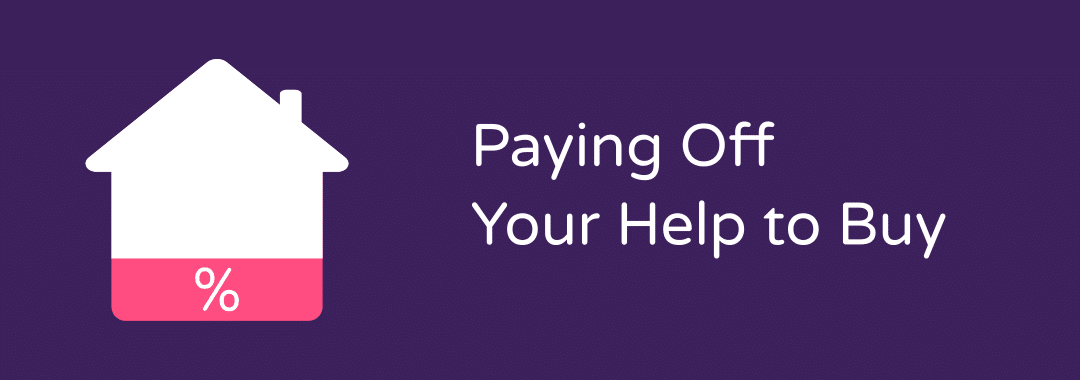Paying Off Help to Buy
Last edit: December 16th 2022
Help to Buy: Equity Loan closes on 31 March 2023 and closed to new applications on 31 October 2022.
The government-supported Help to Buy Scheme is coming to an end after almost 10 years.
Many homeowners who took advantage of the scheme years ago are now approaching the point at which interest payments will kick in, and are wondering whether to make full or partial repayment of their equity loan.
If that's you, here are some of the key things to consider before making a decision.
How much will I have to repay on the Help to Buy Scheme?
The Help to Buy scheme is a shared ownership arrangement between the homeowner and the government.
There is no monthly cost for the homeowner for the first five years although the value of the government’s investment remains as a fixed percentage of the property value.
This means that if the purchase price was £300,000 and you took advantage of a government offer of a 20% share, the amount they contributed would have been £60,000.
Over time, if the property value has risen, for example, to £360,000, the amount owed back remains at 20% which would now be equal to £72,000.
If the property value falls, the amount due to be paid back to the government will also go down.
The valuation will be based on either the sale price of the property or an independent valuation by a surveyor who is a member of the Royal Institute of Chartered Surveyors (RICS).
What about the interest on my Help to Buy Scheme?
After five years, an interest payment will be charged with the money being collected by Homes England. The amount charged every year will depend on 3 things:
• The amount of the initial Help to By Loan
• Whether you joined the initial scheme which ran from 2013 to 2021, or the replacement scheme 2021.
• The rate of inflation measured by the Retail Prices Index (RPI) or the Consumer Prices Index (CPI) depending on which scheme you are involved with.
Let’s assume you joined the initial scheme and you have now passed the fifth anniversary. You will start to make a monthly payment of 1.75% of the initial loan. Following the example above with a loan of £60,000, the amount payable monthly will be approximately £87.50 (£60,000 x 1.75% = £1,050 divided into 12 monthly payments)
Every year after this, the interest rate will increase by the amount of inflation as measured by the Retail Prices Index (RPI) plus 1%.
According to government briefing papers at the time of writing the most recent increase in the RPI measured in October 2022 was 14.2%. After adding the extra 1%, the rate of interest will rise from 1.75% to 2,02% and the monthly payments will jump from £87.50 each month to £101.00.
If you have already been making interest payments for a while you will notice a much bigger jump this year based on the recent turmoil in the UK economy which has caused a significant increase in inflation.
If you have joined the scheme which started in 2021, you will not have to start making interest payments until 2026. The calculation then will be based on an initial interest rate of 1.75% but it will increase each year by the rate of inflation as measured by the Consumer Prices Index (CPI) plus at 2%.
When should I pay back the Help to Buy loan?
The Help to Buy loan must be paid after 25 years or when the property is sold, whichever comes first. Most homeowners, however, should take into consideration the potential increase in the property value which increases the government’s share, and the amount of any interest payments when they start to fall due.
On that basis, it is probably best to settle all or part of the amount due as early as possible, there is no need to wait for the fifth anniversary if you can pay it earlier.
If you are unable to pay down all of the Help to Buy loan, a partial payment of at least 10% of the property value can be made at any time. This will reduce the impact on the final payment when it is settled.
You should speak to your Help to Buy agency before considering a partial payment in case there are any other restrictions.
Assuming that you are planning to keep the property, the full or partial repayment can be made from personal resources such as savings or inheritance.
Alternatively, based on the increased property value and your financial situation, by borrowing the money from a mortgage lender. This could be either a further advance from your existing mortgage provider or a remortgage to a new lender. Feel free to ask for help and advice about that.
Before arranging the extra mortgage finance, you will need to have a valuation completed by a RICS surveyor at your own expense. You can get quotes from surveyors in your area and expect to pay around £300 or more.
Conclusion
When and how you repay the equity share under the Help to Buy scheme is really at your discretion, but you should consider the costs in maintaining the arrangement including the increase in the repayment total amount due and the interest payments that fall due after 5 years.
If you have any concerns or would like help with financing, we’d be delighted to hear from you.

